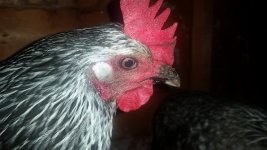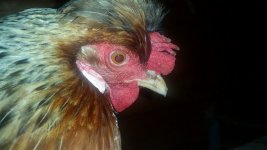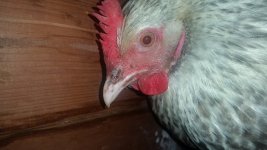hi Richard, and welcome to the forum.I'm sorry it's at such a worrying time.
Have a look at the main Poultrykeeper website (link is at the bottom of each forum page) The section on Respiratory diseases is here. https://poultrykeeper.com/respiratory-problems/ See if you think any of the articles seem to ring a bell especially Mycoplasma and Infectious Bronchitis.
As the articles explain, both these diseases are common in back garden flocks, both are speedily transmitted to all other birds in the flock, and affected birds never fully recover and will pass on the disease to any subsequent healthy newcomers to the flock. So, if this turns out to be the diagnosis, and if you ever hope to be rid of infection in your flock, the only real answer is an 'all out' policy, followed by very through disinfectation of the premises before re-stocking with new pullets, preferably vaccinated ones.
Of course we can't give veterinary advice on here, and you would need a proper diagnosis, but as one bird has already died, I'm very sorry to say the outlook isn't good for the others. Yes, some people do try to treat affected birds with antibiotics, but these are of limited use as infectious bronchitis is due to a virus so antibiotics are inappropriate, and even birds treated with antibiotics for mycoplasma, which is a bacterial infection, are highly likely to have repeated problems and pass on the lingering infection even if apparently recovered. Also, egg production will be affected, and you won't be able to eat the eggs for some time after antibiotic treatment, (some people say never again) because of the possibility of causing antibiotic resistance in the humans who eat the eggs, thus making human antibiotic treatment ineffective when needed. There's a thread about antibiotics at the top of the Chickens Health section, which goes into more details about this. See http://poultrykeeperforum.com/viewtopic.php?f=7&t=8760 Many responsible poultry keepers nowadays have decided never to treat their birds with antibiotics, because the risk to human health of resistance developing is great, and growing, largely from over-use.Also, of course, it can be disproportionately expensive to treat a whole flock.
Sorry this all sounds so gloomy. I hope your vet might have better news, but I feel you do need advice from a vet who can actually examine the birds.



